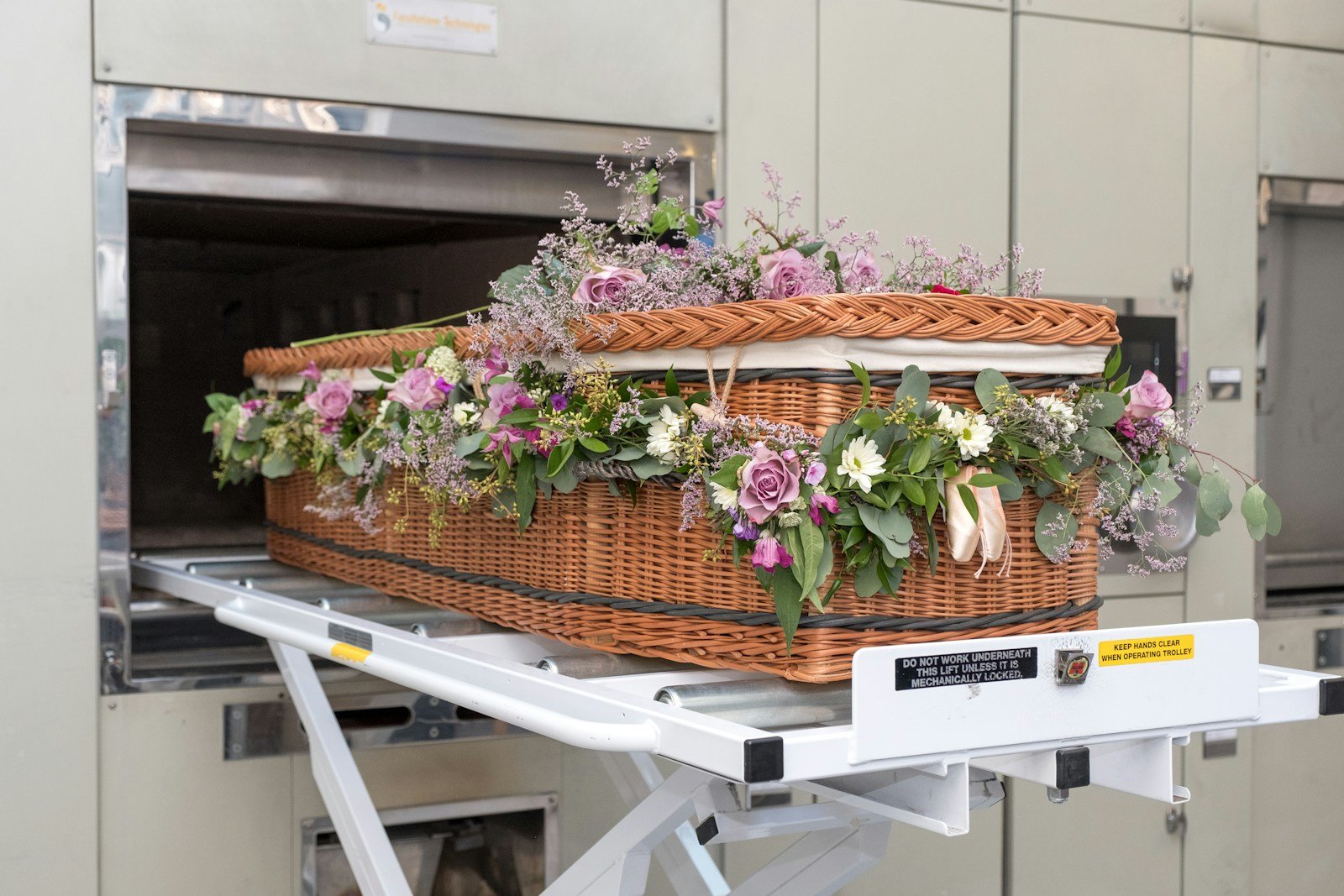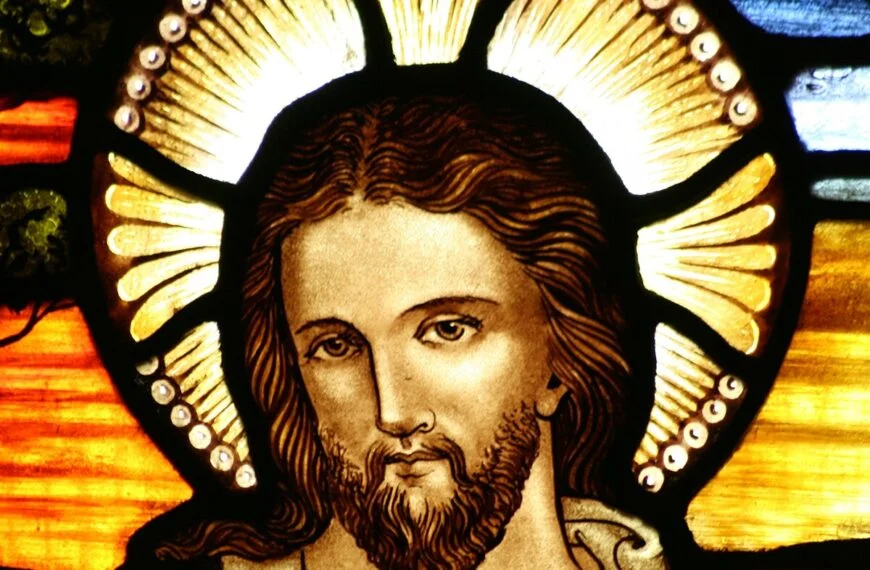Did you know that there is no explicit scriptural command for or against cremation? What does the bible say about cremation ? While the Bible doesn’t provide a direct instruction on the matter, it does offer some intriguing insights into death practices, particularly in the Old Testament. Join us as we delve into the biblical perspective on cremation and burial, exploring the historical context and theological considerations surrounding this topic.
Table of Contents
Cremation in the Bible
The first scriptural reference to cremation is found in 1 Samuel 31, where the bodies of Saul and his sons are burned, and their bones are buried. This was done due to the mutilation of their bodies by the Philistines. While this is not considered the common practice of cremation, it shows that there were instances of cremation in biblical times. Other references to cremation can be found in the book of Amos and indirectly in Leviticus. However, burial was the more common practice for disposing of human bodies in both the Old and New Testament.

Views on Cremation Among Christians
Christian views on cremation can vary. Some Christians may have reservations about cremation due to their beliefs in bodily resurrection, emphasizing the importance of the physical body in the afterlife. They may view cremation as the destruction of the body and prefer traditional burial as a way to show respect for the body’s eventual resurrection. Others may see burial as symbolic of the burial and resurrection of Jesus Christ, aligning with their faith.
Cultural and denominational differences can also influence views on cremation. Some Christians may have concerns about the irreversibility of cremation and its contrast to the natural decay of the body over time. However, it is important to note that there is no explicit scriptural command against cremation, and the decision of burial or cremation lies within the realm of Christian freedom.
Biblical Teachings on Resurrection and Creation
The Bible teaches about the bodily resurrection of believers and the restoration of the physical body. This belief is foundational to the Christian faith and provides hope for eternal life beyond death. While some Christians may question the compatibility of cremation with the concept of bodily resurrection, it is important to understand that God’s power is not limited by the form of the remains. Whether a body has been cremated or not, God is fully capable of resurrecting it.
Resurrection is a central theme in Christianity, highlighting the transformative power of God over death. The concept of bodily resurrection means that believers will experience a physical, glorified existence in the presence of God. This belief is based on the resurrection of Jesus Christ, as described in the New Testament, and is reaffirmed throughout the teachings of the early Christian Church.
In the creation account of Genesis, God forms man from the dust of the earth, breathing life into his nostrils (Genesis 2:7). This highlights the physical nature of the human body, which was intentionally crafted by God. The physicality of the human body is significant in understanding the importance of bodily resurrection and the value placed on the physical form.
Christianity emphasizes the freedom of individuals to choose their preferred method of disposing of their bodies after death. The Bible does not prescribe a specific method, allowing for cultural and personal preferences to be respected. This freedom, known as Christian freedom, gives believers the autonomy to make decisions about burial or cremation based on their own convictions and practical considerations.
The decision of burial or cremation is a matter of Christian freedom, as the Bible does not prescribe a specific method for disposing of bodies.
When it comes to the decision of burial or cremation, it is important for Christians to approach the choice with thoughtful reflection and consideration. While some may find comfort in burial traditions that symbolize the hope of bodily resurrection, others may see cremation as a practical and acceptable option. The emphasis should be on honoring and respecting the deceased, while acknowledging the ultimate hope of resurrection through faith in Christ.
Considerations for Christians
When it comes to the decision of burial versus cremation, Christians may approach the matter from a unique perspective. While both options are considered valid and acceptable within the Christian faith, some believers may have a strong reverence for the physical body and choose burial as a way to show respect for the deceased.
For these individuals, burial holds a special significance as a means to honor the body that played significant roles in their loved one’s life. They view the act of burying their beloved in a grave as a way to provide a final resting place and a tangible connection to their memory. The symbolism and history of graveyards and cemeteries may hold a deep spiritual and emotional meaning for these Christians.
However, it is important to understand that cremation is also deemed acceptable by many Christians and does not inherently go against Christian beliefs. It is a personal choice that should be made based on individual convictions and theological questions rather than a prescribed biblical command.
Some theological questions that may come into consideration include the belief in bodily resurrection and the symbolism of burial. Christians who emphasize the importance of bodily resurrection may lean towards burial, as they view cremation as the destruction of the body and prefer the body to remain intact for its eventual resurrection. In contrast, others may see burial as symbolic of the burial and resurrection of Jesus Christ, aligning with their faith.
The decision between burial and cremation should not be taken lightly and should be guided by a deep understanding of personal beliefs and convictions. It is essential for Christians to seek spiritual guidance and engage in thoughtful reflection when making this decision, taking into account the input of family members, cultural considerations, and personal preferences.
Ultimately, the choice of burial or cremation is a personal decision that falls within the realm of Christian freedom. Both options can be done reverently and with deep respect for the deceased. As Christians navigate this decision, they can find solace in knowing that their choice is a matter of personal conviction and does not alter God’s ability to resurrect and restore the physical body.
| Considerations | Burial | Cremation |
|---|---|---|
| Reverence for the Body | Highlights the importance of the physical body and the belief in bodily resurrection. | Emphasizes the permanence and preservation of the body in a different form. |
| Treasure of Graveyards | Provides a physical resting place and connection to the memory of the deceased. | Allows for alternative memorials such as scattering ashes in meaningful locations. |
| Theological Questions | Aligns with the belief in the symbolic significance of burial and bodily resurrection. | Considers the interpretation of cremation within the context of Christian faith. |
Conclusion
In conclusion, the Bible does not provide a clear directive on cremation. While burial was the more common practice in biblical times, cremation was also occasionally mentioned. Christian views on cremation can vary, with some emphasizing the importance of the physical body and bodily resurrection, while others see cremation as an acceptable option. The decision of burial or cremation is ultimately a personal choice and falls within the realm of Christian freedom.
It is important for individuals to seek spiritual guidance, consider their beliefs, and make a decision that aligns with their faith and convictions. Whether one chooses cremation or burial, it is crucial to approach this decision with respect and reverence. Both methods of final disposition offer ways to commemorate and honor the deceased. Ultimately, what matters is that the decision is made based on personal conviction and a desire to fulfill one’s Christian obligations.
As Christians, we have the freedom to make choices regarding cremation or burial that reflect our personal beliefs and values. The decision should not be approached with judgment or a sense of obligation but rather as an opportunity to exercise our Christian freedom. Regardless of the method chosen, the focus should be on remembering and honoring the lives of those who have passed away and finding comfort in the hope of eternal life that is central to our Christian faith.
FAQ
What does the Bible say about cremation?
According to most biblical scholars, there is no explicit scriptural command for or against cremation. While there are no passages that forbid cremation, some instances of cremation are described in the Bible. The Old Testament mentions the burning of bodies and burying of bones due to mutilation, and burial was the standard practice. However, the Bible does not explicitly state whether cremation is acceptable or not.
Are there references to cremation in the Bible?
Yes, there are references to cremation in the Bible. In 1 Samuel 31, the bodies of Saul and his sons were burned, and their bones were buried due to mutilation by the Philistines. While this is not considered the common practice of cremation, it shows that there were instances of cremation in biblical times. Other references can also be found in the book of Amos and indirectly in Leviticus. However, burial was more commonly practiced.
What are the views on cremation among Christians?
Christian views on cremation can vary. Some Christians may have reservations due to their belief in bodily resurrection and the importance of the physical body in the afterlife. They may view cremation as the destruction of the body and prefer traditional burial to show respect for the body’s eventual resurrection. Others may see burial as symbolic of the burial and resurrection of Jesus Christ, aligning with their faith. Cultural and denominational differences can also influence views on cremation.
What do biblical teachings say about resurrection and creation?
The Bible teaches about the bodily resurrection of believers and the restoration of the physical body. While some Christians may have concerns about cremation and its implications for resurrection, it is important to remember that God is capable of resurrecting any remains, whether they have been cremated or not. The decision of burial or cremation is a matter of Christian freedom, as the Bible does not prescribe a specific method for disposing of bodies. The creation of man in Genesis also emphasizes the physical nature of the human body.
What considerations should Christians keep in mind regarding burial and cremation?
Some Christians may have a sense of reverence for the body and prefer burial as a way to show respect for the deceased. They may also attach special meaning to graveyards and cemeteries. However, it is important to note that cremation is considered acceptable by many Christians and does not inherently go against Christian beliefs. The decision to bury or cremate should be made based on personal convictions and theological questions, as there is no specific biblical command either way.
What is the conclusion regarding cremation and burial?
The Bible does not provide a clear directive on cremation. While burial was the more common practice in biblical times, cremation was also occasionally mentioned. Christian views on cremation can vary, and the decision of burial or cremation falls within the realm of Christian freedom. It is important for individuals to seek spiritual guidance, consider their beliefs, and make a decision that aligns with their faith and convictions.

Rockin’ the faith, one verse at a time!
Growing up, the Bible’s stories deeply impacted me. Now, with over 15 years of preaching experience, I blend timeless teachings with modern technology, making them relevant for today’s world.
Bible Hub Verse is my platform to share historical insights and thought-provoking articles, exploring both familiar and uncommon Christian topics. My passion is building a welcoming online space for everyone to learn, grow in their faith, and discover the Bible’s enduring message.
Join the journey!
God bless you.







